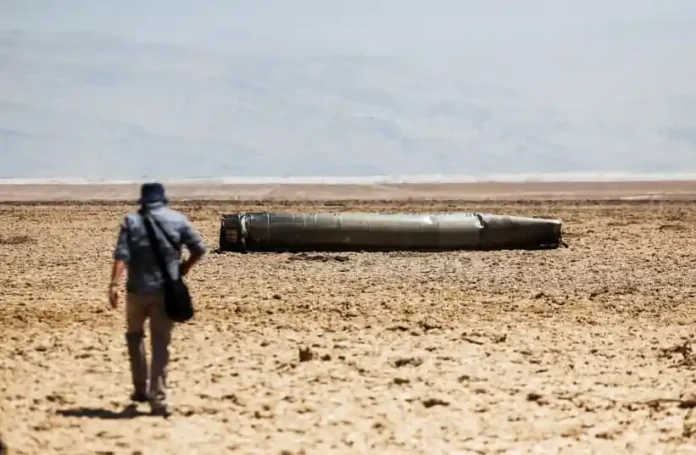In recent weeks, heightened tensions between Iran and Israel have captured global attention, particularly following the assassination of Ismail Haniyeh, the head of Hamas’s political bureau.
Dr. Hani Suleiman, a researcher on Iranian affairs, shed light on Tehran’s strategic maneuvers and its implications during an interview on Saudi Al-Hadath channel on Saturday.
According to Dr. Suleiman, Iran’s recent actions appear to be part of a broader strategy to showcase its military capabilities, send deterrent messages to Israel and the United States, and recalibrate its position following the assassination of Haniyeh.
Suleiman noted that these efforts are not only about demonstrating strength but also about rebuilding trust with militias influenced by Tehran that might have been strained by recent events.
“This is aimed at Israel and the US, as well as the militias under Iran’s influence, to rebuild trust that was damaged due to the assassination of Ismail Haniyeh,” Suleiman explained.
He emphasized that while Iran is indeed in a challenging situation, the precise nature of its response remains uncertain. This uncertainty stems from concerns about the proportionality and potential consequences of any retaliatory actions.
Suleiman highlighted that Iran is meticulously weighing its options, partly due to significant pressures from the United States.
Reports have suggested that an American delegation, operating in secrecy, visited Iran via Turkey to deliver warnings and reassurances. This visit appears to be part of broader American efforts to mitigate Iranian defiance and manage the escalating situation.
“In this context, I believe Iran is trying to send discouraging messages while possibly upgrading its air defense systems and UAVs,” Suleiman stated.
He pointed out that Iran’s emphasis on maintaining deterrence is critical given the potential negative consequences of failing to effectively control its military capabilities.
Suleiman further elaborated that Hezbollah’s leader, Hassan Nasrallah, had indicated Israel’s anticipation of a response, which aligns with Iran’s strategy to create a perception of deterrence.
Some Iranian officials have echoed this sentiment, portraying Israeli anxiety as a success in Iranian deterrence. Suleiman suggested that Israel’s fear and apprehension about Iranian threats are a testament to the effectiveness of Tehran’s current strategy.
The researcher also discussed Iran’s strategic use of time to manage the crisis and calm the volatile situation. “I believe Iran is using time strategically to calm the atmosphere and possibly contain the crisis and emotional tensions,” Suleiman said.
He pointed out that the current situation reflects a deliberate retreat and a lowering of expectations from Iran, acknowledging the potential severe repercussions of any aggressive response.
According to Suleiman, Iran’s approach includes a combination of pressure tactics and new bargaining strategies. These involve discussions about Iran’s nuclear capabilities and interactions with the international community.
Direct American communications through intermediaries, including regional countries, are also part of this complex diplomatic landscape.
As the situation unfolds, Suleiman predicts that the US will seek to maintain ambiguity with Iran while dissuading it from taking aggressive actions.
However, he also suggests that the US might eventually show understanding if Iran opts for a symbolic, qualitative, or limited attack that avoids further escalation.
“The US is trying to maintain ambiguity with Iran and dissuade it from aggressive actions,” Suleiman noted. “However, the US may eventually show understanding if Iran conducts a symbolic, qualitative, or limited attack that does not escalate the conflict.”
Suleiman’s analysis underscores the intricate balance of power and diplomacy at play. Iran’s strategic calculations involve not only showcasing military strength but also navigating a complex web of international relations and internal pressures.
As Tehran continues to manage its responses and interactions with global powers, the situation remains fluid, with significant implications for regional stability and international diplomacy.
In summary, Dr. Hani Suleiman’s insights provide a detailed understanding of Iran’s current strategic posture and its broader implications.
As tensions between Iran and Israel persist, the international community watches closely, hoping for a resolution that averts further escalation and promotes stability in the region.

